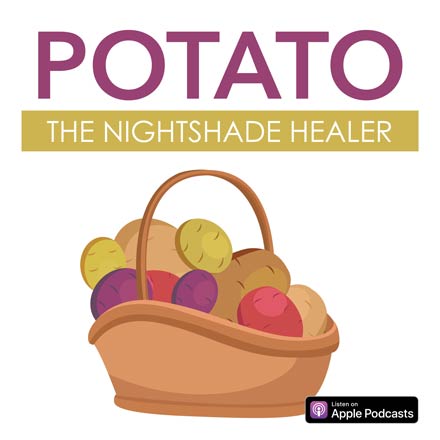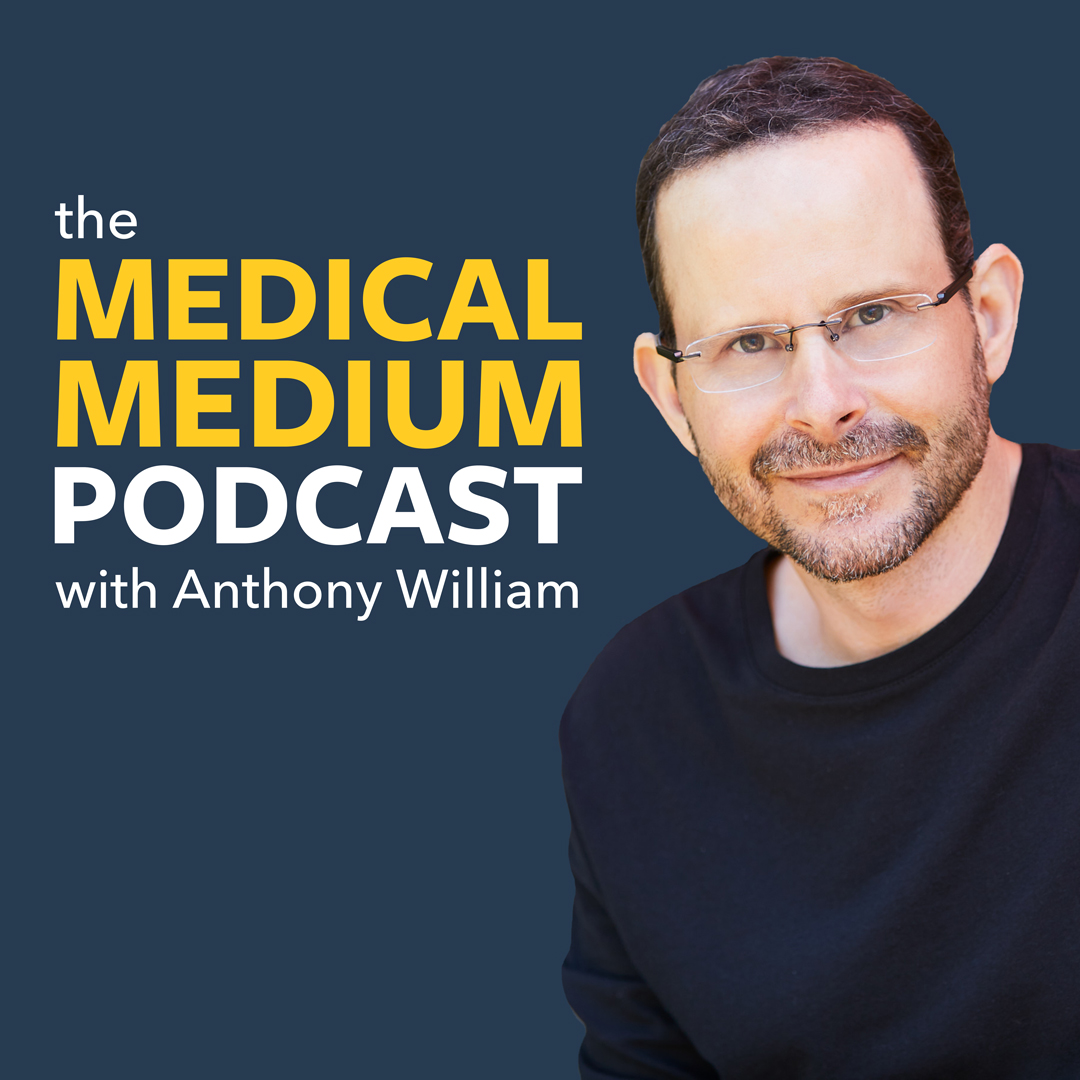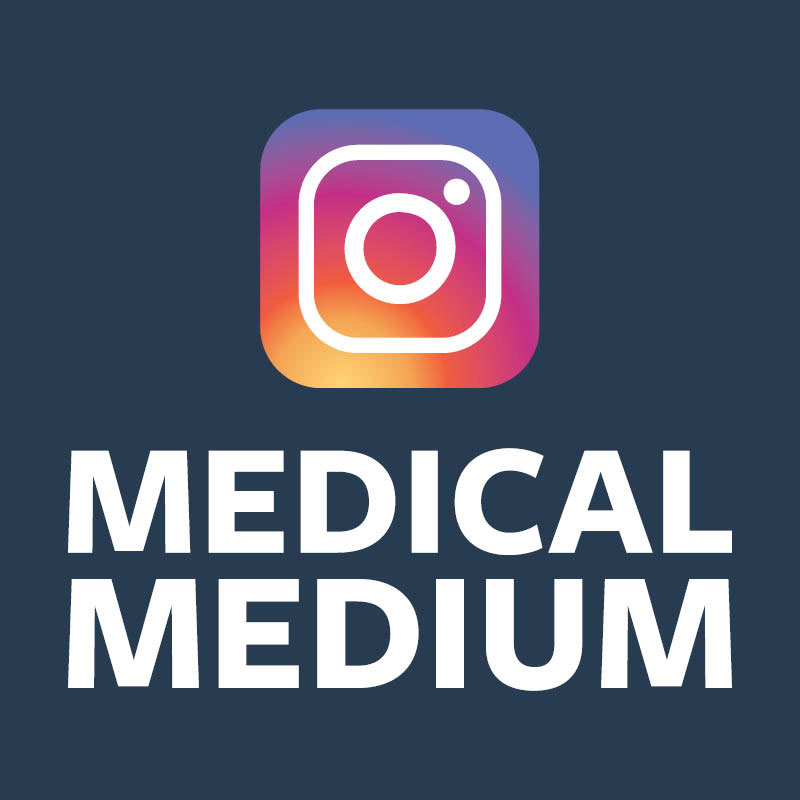Medical Medium Podcast:
Potato: The Nightshade Healer
The information in this podcast and the article below is advanced, ahead of science and research, and is part of the Medical Medium information that has helped to heal millions of people worldwide. Please cite back to this original source so others have the opportunity to recover and get their lives back.

When people eat potatoes, they often choose something to have with them. People like to have cheese or sour cream on their baked potatoes; milk and butter on their mashed potatoes; and mayonnaise in a potato salad. It is not commonly known for someone to choose to eat a potato on its own. Even when someone is eating French fries by themselves at a restaurant, it isn’t really potatoes on their own, it is potatoes coated or fried in vegetable oil or lard.
When we think potatoes, we often think “high in carbs” or “this will put on unwanted pounds,” and choose to stay away from them. Potatoes become the food to blame because of misinformation. We are so worried about carbohydrates, thinking that is the issue, and overlook something more important as being the problem – what we are adding to our potato.
We can eat a bag of greasy potato chips, have grease smeared all over our hands and face, on the beverage we’re holding, and on our napkin, and still say “I’ve got to watch my carbs. I’m eating too many fries.” Instead, we should be saying “I’ve got to watch my grease, I’m eating too much fat.” This same concept applies to baked potatoes with sour cream, butter, and cheese. We may say, “I just had a big carb meal” instead of the truth, which is, “I just put a ton of fat on top of my poor potato.” It is the combination of putting fat and carbs together that is troublesome for the body. Our body doesn’t have a hard time breaking down, assimilating, and digesting glucose from a potato—our bodies thrive on it. Our liver, gallbladder, stomach, and pancreas have a hard time digesting and breaking down fats, especially in the form of dairy products, such as milk, cheese, butter, frying oils and lard. These fats are to blame for weight gain, not potatoes. When we ignore that, it defies common sense.
Diabetes and Insulin Resistance
Potatoes have been picked on for being a harmful food for diabetics because many people believe potatoes drive up A1C levels. The truth is, potatoes are not to blame for rising A1C levels in the body. The fat contained in the oil and dairy products usually consumed on top of potatoes are the reason A1C levels may rise in the body. When fat and sugar are consumed together, insulin resistance can occur. This can happen because the fat in the bloodstream inhibits the sugar and insulin from entering cells, and instead suspends it in the bloodstream causing insulin resistance. Learn more in this podcast episode.
Healing Properties of Potatoes
When health professionals think about the potato, they think it is void of nutrients, which couldn’t be further from the truth. Potatoes are high in Zinc and L-Lysine which are antiviral compounds and critical in stopping viruses, the very thing behind lupus, multiple sclerosis (MS), rheumatoid arthritis, neurological Lyme disease, chronic fatigue syndrome, Reynaud’s syndrome, vertigo, POTS, endometriosis, PCOS, fibroids, and so much more. Health professionals will tell a patient struggling with endometriosis or PCOS to eat butter, cheese, and eggs, but to stay away from potatoes. Potatoes are an antiviral food and can stop pathogens from growing; whereas dairy products, the food many people put on top of their potatoes, are what feed viruses, grow pathogens, and can accelerate disease. More about the healing properties of potatoes in this podcast episode.
Central Nervous System
The glucose in potatoes strengthens the central nervous system and is critical for anxiety, depression, bipolar disorder, OCD, and anyone going through an emotional struggle or hardship. Potatoes are also important for people who have other neurological conditions such as chronic fatigue syndrome, multiple sclerosis (MS), Parkinson’s, and ALS.
Intestinal Tract
Potatoes feed the good bacteria inside the intestinal tract while also starving the bad bacteria, such as Streptococcus, C. diff, and E. coli. Potatoes also soothe the linings of the intestinal tract and can help heal Crohn’s, colitis, IBS, celiac, ulcers, gastroparesis, esophageal spasms, cramping, bloating, and other digestive disorders. Find out more about how potatoes can help digestive disorders in this podcast episode.
Food Poisoning
Many people who get food poisoning struggle from the aftereffects long after they have recovered from the food poisoning episode. They can continue to have mild bouts of nausea, cramping, bloating, discomfort, intermittent pain, and even constipation. Potatoes are a soothing food that is gentle on the linings of the intestinal tract and helpful for a full recovery. Eating potatoes steamed and by themselves, is a helpful way to jump your healing forward.
In This Podcast Episode:
- Learn more in depth information on the topics in this article.
- Find out how to recover from the aftereffects of food poisoning using the potato.
- How potatoes are not a food that puts on weight as people think.
- Learn how potatoes do not cause inflammation.
- Discover why potatoes should not be feared because they’re a nightshade.
- Learn where you get the trace mineral zinc from, in a potato.
- What is the best way to eat potatoes?
- Plus, much more…
Moving Forward
The potato is the ultimate underdog—full of potential, yet perpetually overlooked and trampled on. They have gotten a bad rap for far too long. Potatoes are valuable and beneficial for your health and can help heal many health symptoms and conditions.
This item posted: 05-Nov-2020
The information provided on this Site is for general informational purposes only, to include blog postings and any linked material. The information is not intended to be a substitute for professional health or medical advice or treatment, nor should it be relied upon for the diagnosis, prevention, or treatment of any health consideration. Consult with a licensed health care practitioner before altering or discontinuing any medications, treatment or care, or starting any diet, exercise or supplementation program. Neither Anthony William nor Anthony William, Inc. (AWI) is a licensed medical doctor or other formally licensed health care practitioner or provider. The content of this blog and any linked material does not necessarily reflect the opinions of Anthony William, AWI or the principal author, and is not guaranteed to be correct, complete, or up to date.
Thanks for printing this post. For more, visit www.medicalmedium.com





















































